The gastric sleeve procedure, or sleeve gastrectomy, is the ever-popular bariatric surgery in which the surgeon removes part of the stomach, creating a narrow pouch, or sleeve. This newly formed sleeve is significantly smaller and can hold far less food. It is often thought to be somewhat safer than gastric bypass surgery resulting in fewer complications. That being said, what qualifies gastric sleeve results as successful?
Successful gastric sleeve results
There are a few markers that can constitute a successful outcome. These include: percent excess weight loss (%EWL), improvement in obesity-related health conditions, or comorbidities, and overall weight regained over time. Let’s take a closer look into each of these.
Percent excess weight loss
The percent excess weight loss, or %EWL, is a common marker used throughout the industry to compare not just gastric sleeve results, but weight loss outcomes of all bariatric surgeries.
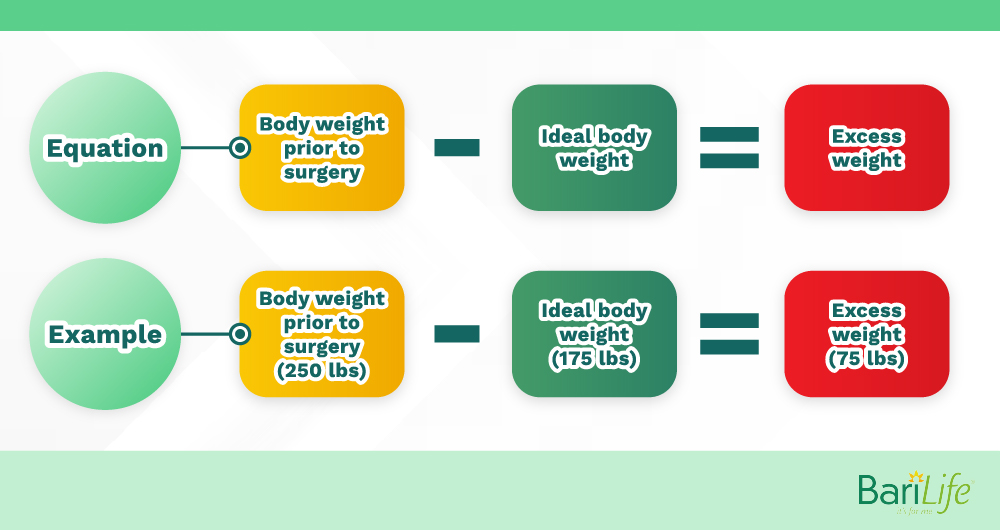
Excess weight is first determined by subtracting the patient’s ideal body weight from their body weight prior to surgery. The remaining amount is excess weight beyond their ideal body weight. Once the patient begins losing weight, that weight loss becomes a percentage of their excess body weight. For example, if an individual had an excess body weight of 75 lbs, and that same individual lost all 75lbs, their percent excess weight loss will be 100%. For an even more detailed understanding of excess body weight, take a look at this article.
What %EWL constitutes successful gastric sleeve results? This varies based on how far out after surgery we are looking. At around 6 months post-surgery, patients can experience, on average, a 50% EWL. At one year, 60% and two years, 65% EWL. Therefore, if your gastric sleeve results are similar to these, then that would be considered positive results.
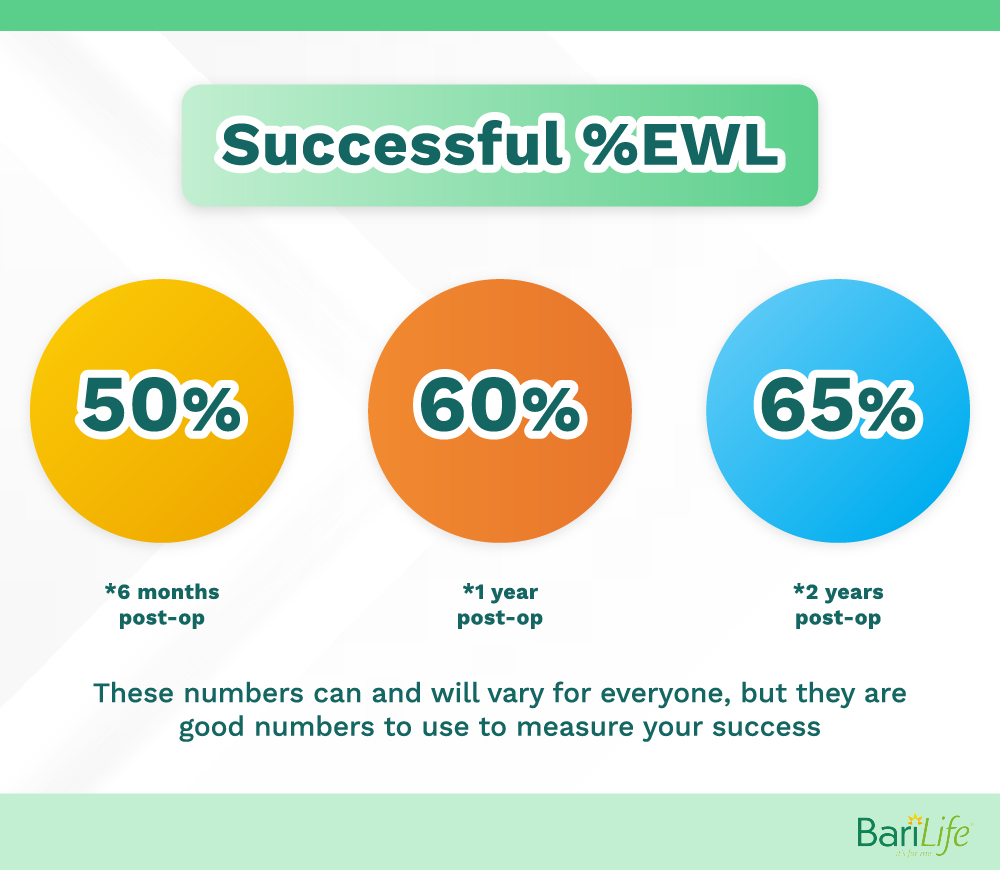
Improvement of obesity-related health conditions
Obesity itself is a cause for many health conditions such as:
- Diabetes
- High blood pressure
- High cholesterol
- Fatty liver disease
- Gastroesophageal reflux disease
- Arthritis/joint pain
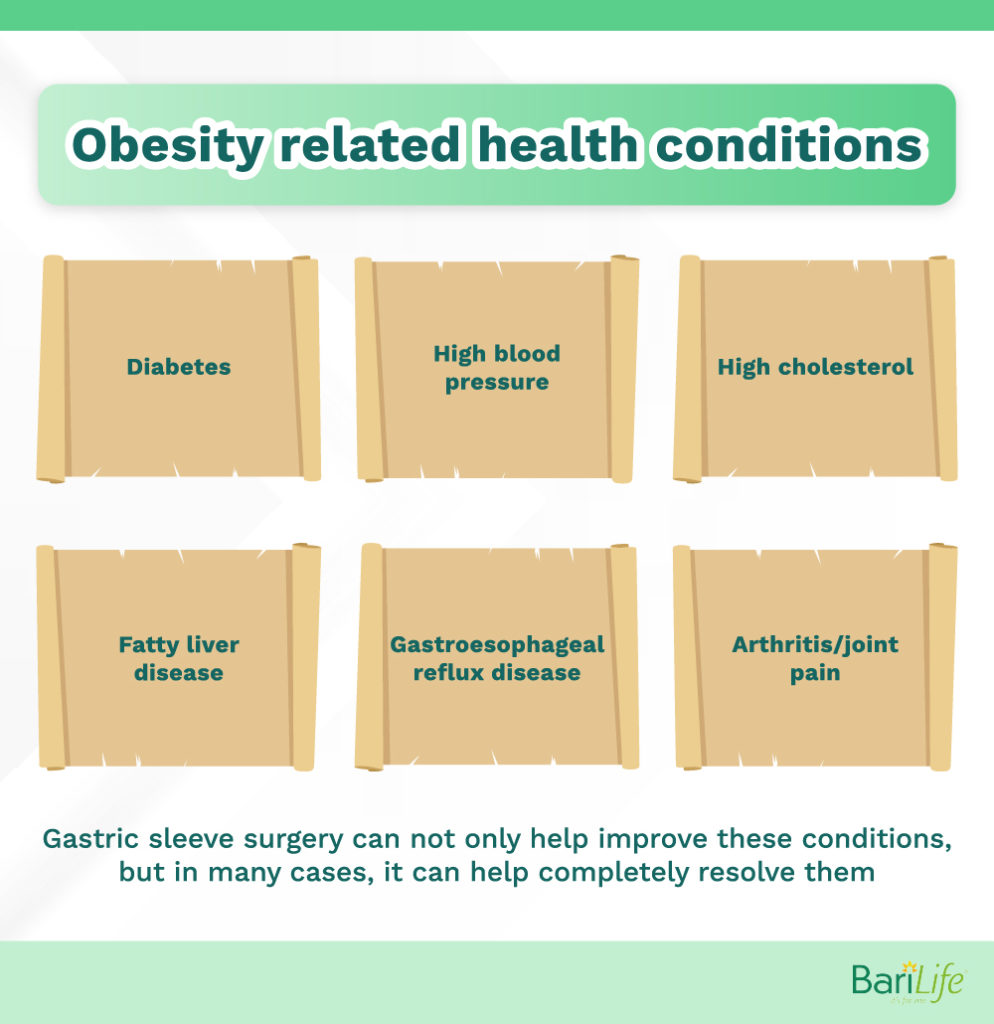
Electing to undergo bariatric surgery can be an important step towards regaining one’s overall health and well-being. After surgery, we often see improvement and even complete resolution of many of these symptoms with the help of weight loss.
For example, one study demonstrated that 63% of patients found their type 2 diabetes to be completely resolved 6 months post gastric sleeve surgery. Another study demonstrated significant improvement in high blood pressure in patients with 34% of patients no longer requiring medication and many others reducing medication amounts significantly. From normalization of cholesterol levels and improvement and/or the resolution of fatty liver disease, to complete resolution of joint pain for many, gastric sleeve results in improved overall health for most.
Weight regained over time
The final indicator of a successful gastric sleeve surgery that we will discuss, is the amount of weight a patient regains over time. After losing a very large amount of weight initially, it is common to have some of that weight return. However, it is important that the weight gained in the years after gastric sleeve surgery is minimal.
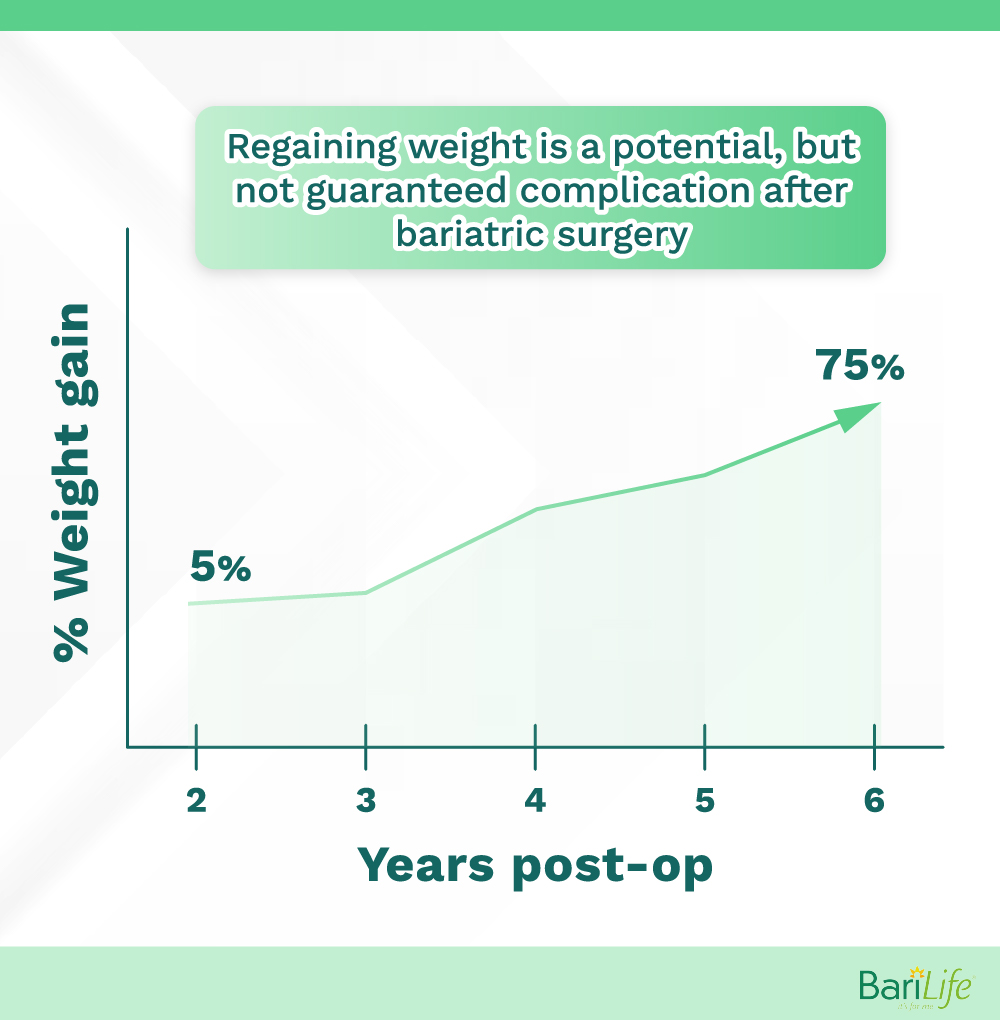
Research shows that weight regain can be anywhere from around 5% at two years post-op, all the way up to 75% or more by six years post-op. Gastric sleeve results can be dependent on a number of factors, but the good news is, you have control of many of them. Keep reading for ways to decrease the likelihood of regaining weight after surgery.
Let’s take a closer look at why some gastric sleeve results are worse than others.
Why do some gastric sleeve surgeries fail?
There are a number of reasons why some people experience better gastric sleeve results than others, here are some of them:
- Not adhering to doctor’s recommendations. The week’s post-surgery are extremely important for proper healing, overall health, weight loss, and successful gastric sleeve results. The surgeon will lay out a plan to gradually introduce solid foods, as well as provide recommendations for exercise. It is imperative that the patient follow the doctor’s orders to experience the best possible outcome.
- Resuming unhealthy eating habits. This may seem like a no-brainer, but returning to old eating habits that led to the original weight gain will cause larger amounts of regained weight. Patients may feel at ease with their weight loss and slowly fall back into old habits.
It appears that certain behaviors are especially linked to weight regain post bariatric surgery:
- Binge eating
- Grazing
- Eating large quantities of food
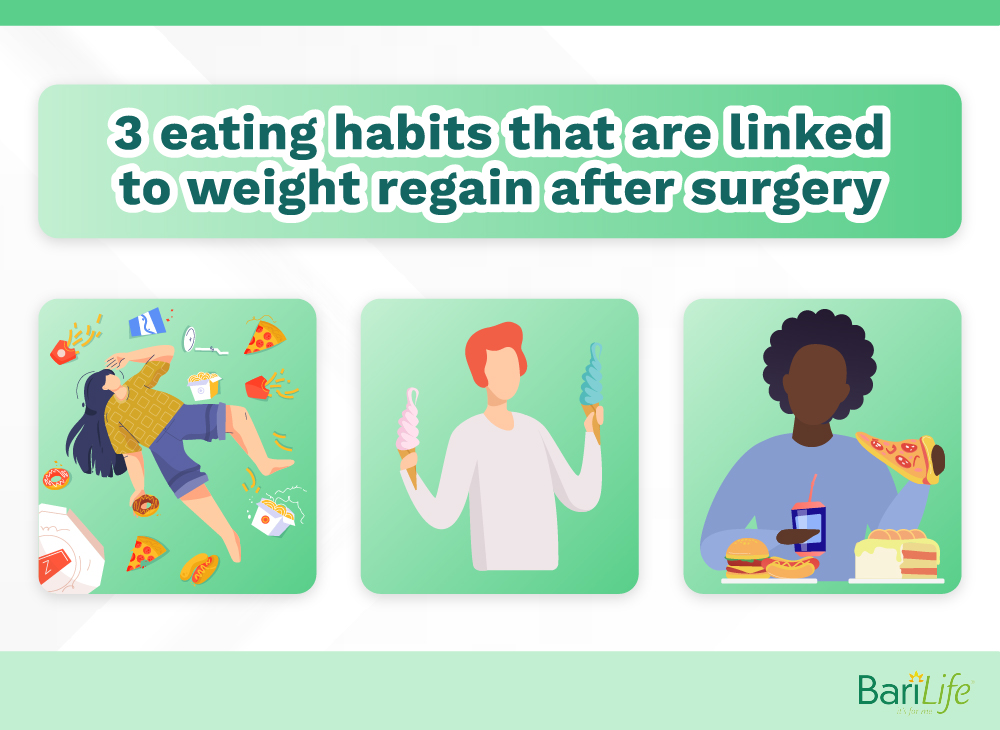
These behaviors can expand the stomach capacity over time and lead to increased weight gain. It is important for the patients to work through the causes of those patterns to prevent them from recurring. Consulting a licensed mental health counselor can be of great support to the patient post gastric sleeve surgery.
- Lack of exercise. Patients often see worsened gastric sleeve results if they do not adopt a regular exercise plan. Research tells us that exercise plays an important role in maximizing weight loss after bariatric surgery. An individual can reduce their BMI by 4 additional percentage points at 12 months post-op if they exercise. Consistent exercise also appears to continue to improve weight loss at the two-year mark post-surgery.
- Variations in surgical techniques. Each surgeon and surgery center has its own techniques and methods to maintain surgical quality and practices. These, often slight, variations can play a role in gastric sleeve results. It is always recommended to have your surgery performed by a trusted bariatric surgeon.
What can I do to ensure my surgery is successful?
By avoiding the aforementioned pitfalls, you can significantly improve your gastric sleeve results. Let’s review:
- Follow your doctor’s post-surgical recommendations as closely as possible
- Change your lifestyle to support your healthy habits and steer clear of falling into old eating patterns
- Consider professional counseling to help you navigate these changes effectively, especially if you are finding yourself binge eating, grazing throughout the day, and/or eating larger portions of food often
- Begin or resume a regular exercise routine as soon as you get the ‘go ahead’ from your surgeon
- Do your research. When electing to undergo gastric sleeve surgery, choose a well trusted and respected surgeon in the field of bariatric surgery
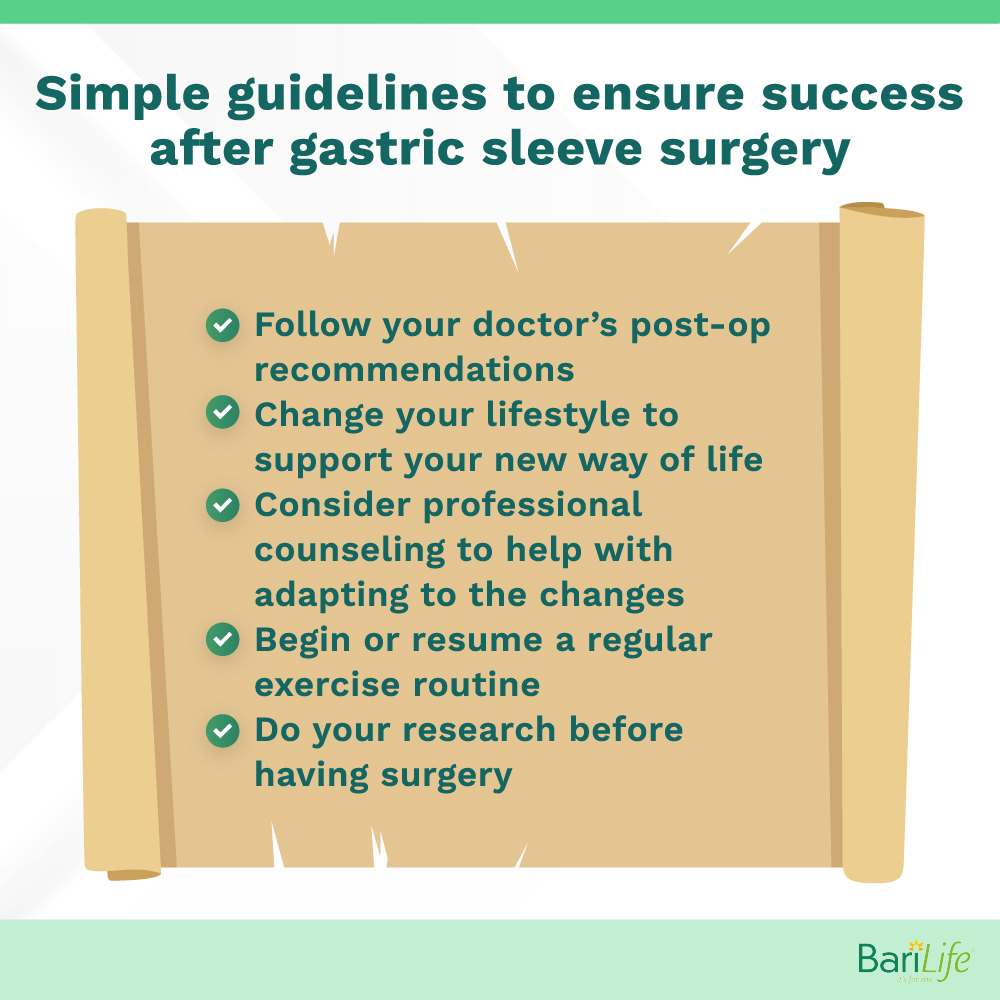
In short
After taking the leap to undergo bariatric surgery, it is only normal to want to do everything possible in order to achieve the best gastric sleeve results. A successful gastric sleeve can be measured by percent excess weight loss of 50% at six months, 60% EWL at two years, and 65% EWL at two years.
Successful gastric sleeve surgery will also yield improvements in or the resolution of obesity-related health conditions such as diabetes, high blood pressure, high cholesterol, fatty liver disease, gastroesophageal reflux, and even joint pain. Additionally, maintaining post-surgical weight loss with minimal weight regain is an indicator of positive gastric sleeve results.
The patient can attempt to avoid a failed gastric sleeve surgery by closely following their surgeon’s recommendations, maintaining healthy eating habits while avoiding detrimental former patterns, seeking professional support, and choosing a trusted bariatric surgeon to perform their gastric sleeve procedure.
Although some surgical outcomes are completely out of our hands, in general, the patient’s contribution post-surgery makes all the difference in creating positive gastric sleeve results.




What are your tips and tricks to post-bariatric success?